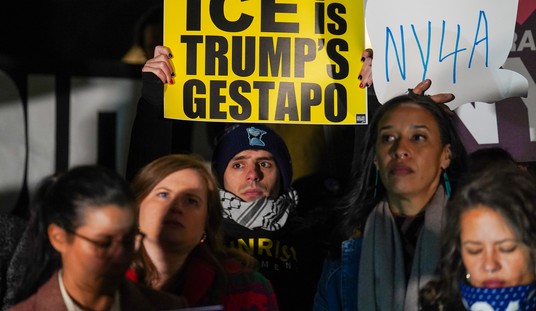In the first months of 2012 I was asked if I would consider a private commission from a company to write a report on the question of whether the nations surrounding China could resist Beijing’s pressure to advance its ambitions in the South China Sea, and a short preview of what my conclusion might be. My short reply is below and there the matter ended:
I think the short answer to the question you pose is “Yes, The Outer Asian shore—Korea, Japan, Taiwan, Philippines, Singapore—will be secure and more than capable of resisting Chinese attempts to pressure them one-by-one”. The reason for this, is in a nutshell — Japan, and to a similar extent, the United States. It’s is in Japan’s existential interest to keep China from being overly dominant, and it can and will play a role similar to that played by Britain during the Napoleonic wars; keeping the balance of power. The alternative is to submit to long-term Chinese dominance; and it will not do so without a fight.
The confirmation of this was captured in a New York Times article on Japan’s growing military and security role in Asia. It encapsulates the decline of America as the Pacific hegemon and Japan’s return to regional power.
“During the cold war, all Japan had to do was follow the U.S.,” said Keiro Kitagami, a special adviser on security issues to Prime Minister Yoshihiko Noda. “With China, it’s different. Japan has to take a stand on its own.”…
“We want to build our own coalition of the willing in Asia to prevent China from just running over us,” said Yoshihide Soeya, director of the Institute of East Asian Studies at Keio University in Tokyo. …
The Japanese Navy took a big step toward opening up in 2009 by holding a joint military drill with Australia — its first such exercise with a nation besides the United States. It has since joined a number of multinational naval drills in Southeast Asia, and in June held its first joint maneuver with India. …
Under the decade-old civilian aid program to build up regional coast guards, Japanese officials say they are in the final stages of what would be their biggest security-related aid package yet — to provide the Philippine Coast Guard with 10 cutters worth about $12 million each. Ministry officials say they may offer similar ships to Vietnam.
Japan’s Ministry of Defense said it planned to double its military aid program next year to help Indonesia and Vietnam. Vietnam could also be among the countries that Japan would allow to buy its submarines, according to a former defense minister, Toshimi Kitazawa, who named Australia and Malaysia as other possible buyers.
Japan can no longer simply “follow the US”. The US is leading from behind.
This happens at a time when essential commodities like food and fuel are becoming more expensive than they have been in decades. Walter Russell Mead points out that China is now dependent on foreign food imports for survival, a trend that is increasing yearly. Nor is it alone. India is in the same boat. This increases the dependence of huge population centers on freedom of navigation and the availability of fuels. In other words, it relies upon elements of US capability that are either being sequestered or given over to the ‘Arab Spring’.
David Archibald is preparing a study on the world food and fuel situation and writes that things are getting tight, not just in places like Egypt, but all over the world.
Over the last decade, the oil price has been rising at fifteen per cent compound. There is no reason for that rate of rise to slow down soon. Just as having food prices double will be big suppressant of discretionary expenditure, higher fuel costs will also reduce what can be spent on things that aren’t transport fuels. If fact, fuel will be a double whammy in food prices. Energy costs are currently 60% of the cost of food production. A doubling of the oil price from here will increase food costs by a further 50% than what scarcity alone will do. …
As Australian oil production falls, Australian oil refineries close and we source more and more of our needs from refineries in Singapore, our defence capability decays super-linearly. How can anyone in their right mind think that we could fight in a war to protect ourselves when the fuel necessary for that is coming from the area where that war will be fought? There are only about two weeks’ worth of stocks in the Australian fuel system. As soon as a conflict starts in the Asian region, our economy will be paralysed.
The other way to put Archibald’s worry is the way the Gillard administration frames it on an Australian government website:
Projected reductions in our crude oil production and refining capacity will mean that demand will increasingly be met by imports of crude oil and refined product … This is not considered to affect our liquid fuel security because we have ready access to mature, diverse and reliable international supply chains and robust market governance and emergency response arrangements. Announced refinery closures will occur on the basis of an orderly transition to increase import capacity to ensure continuity of supply.
That’s right. Officially the liquid fuel shortage is a feature, not a bug.
What does this mean for international stability? President Obama offered his supporters a vision of world peace but at the same time he is knocking the props out from under the longest period of calm in modern history. The administration’s slogan should be: food stamps without food, prosperity based borrowed money and safety in a powder-keg.
Nearly a year after I was asked to predict the situation in the Pacific, maybe we have started a potentially catastrophic chain of events that should be watched carefully. But policy makers are increasing the risk by pretending — like the Gillard government — that warning signs are in fact symptoms of progress.
It’s almost as if a peculiar madness has taken hold. Just today Time Magazine discovered something: that UN Peacekeeping is a failure. “Defining Peacekeeping Downward: The U.N. Debacle in Eastern Congo”
Mandated to protect Congo’s civilians, with 19,000 men in uniform and costing $1.4 billion a year, the world’s biggest and most expensive peacekeeping operation was literally leaving its charges in its dust. Later in the day Monusco, far better armed and more numerous than the rebels, simply stood and watched as the M23 — easterners who oppose the central government in Kinshasa — took Goma almost without firing a shot. France called Monusco’s conduct “absurd.” The Congolese were less forgiving. Across the east of the country, angry mobs surrounded U.N. positions, threw stones at aid workers and burned U.N. compounds. Asked what they thought of Monusco, a group of young men standing by the shore of Lake Kivu in Goma cried out in unison: “Useless.” Amani Muchumu, 18, had a message for the peacekeepers. “You could not defend us,” he declared. “You are dismissed.”
No they are not dismissed. They’ll be back. In fact they have never left, even if they are not really there. Time describes the surprise of even hardened genocidaires at the UN’s complete insensibility.
Perhaps worse even than failing to keep or establish peace, Monusco has also failed spectacularly in its most fundamental mission: protecting civilians. In 2005, MONUC expelled 63 of its soldiers for paying refugee children for sex. A separate internal inquiry the same year found that Pakistani peacekeepers sold weapons to militias in exchange for gold …
Now TIME has learned from two NGO sources in eastern Congo about an incident that memorably illustrates Monusco’s callous ineffectiveness. In September the town of Pinga, west of Goma, was taken over by a private militia and protection racket called Mai Mai Cheka (after its commander Colonel Cheka). On capturing the town, Cheka ordered the decapitation of several civilians who were local notables from rival tribes. Then Cheka, wanting to force the peacekeepers to leave their base, resorted to the kind of barbarism he thought no U.N. force could ignore. On his orders, several heads were thrown at the base gates while Cheka shouted: Come out!” Cheka was also said to have paraded as many as seven severed heads on sticks in the town. “Do you think Monusco ventured out of the gate?” asks a senior aid worker with knowledge of the incident. “[They did] nothing. How safe did the population feel after that?”
Yet nothing is learned. Nothing will be changed. It is almost as if, having endured four years of unemployment, economic decline and international chaos, a US public decided to re-elect the administration responsible. The international institutional framework has become disconnected from reality. It is accountable to nothing and bids fair to keep going until it collapses from its own incompetence.
http://www.youtube.com/watch?v=Aacbq8MzZLI
The Three Conjectures at Amazon Kindle for $1.99
Storming the Castle at Amazon Kindle for $3.99
No Way In at Amazon Kindle $8.95, print $9.99










Join the conversation as a VIP Member